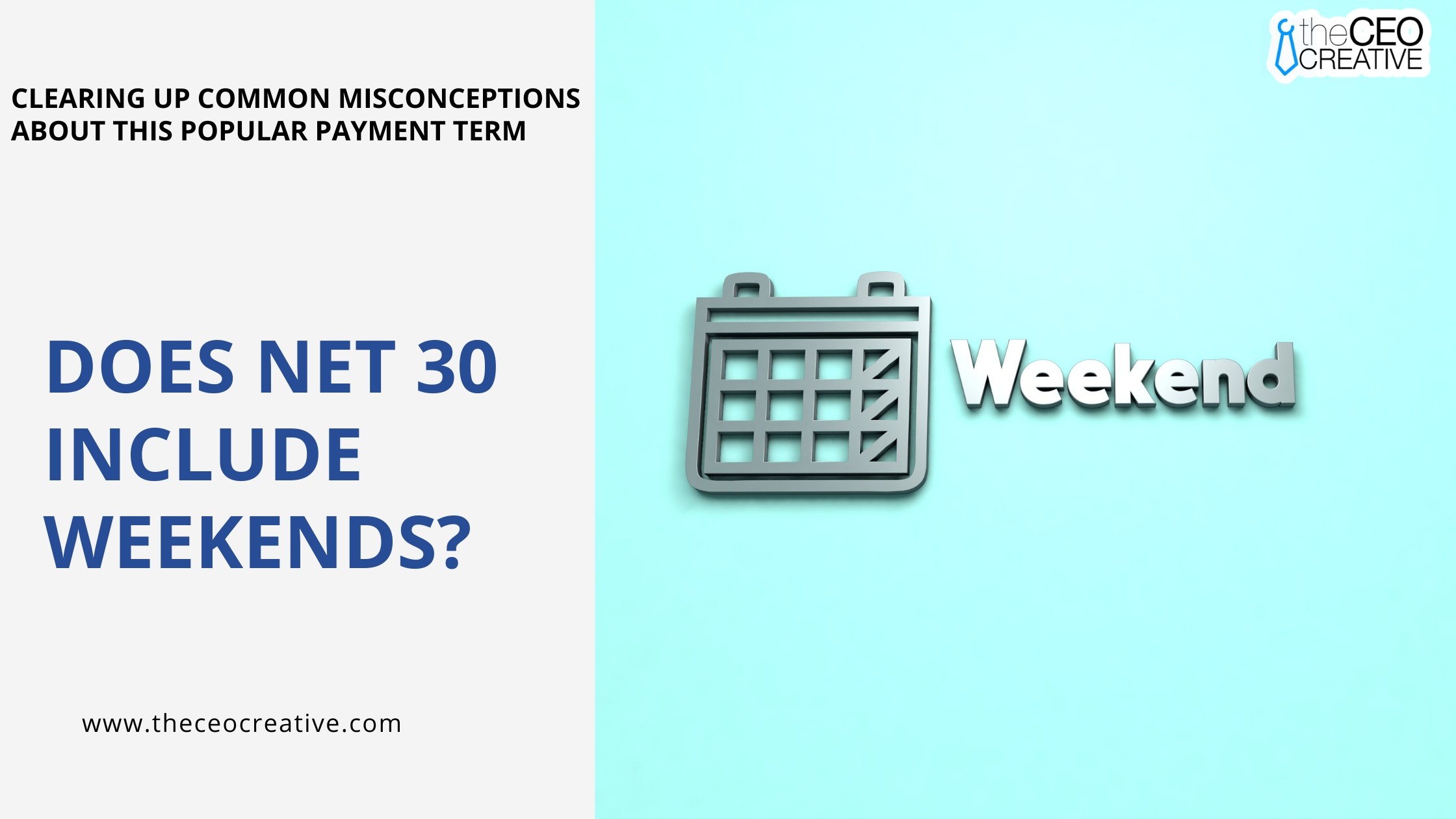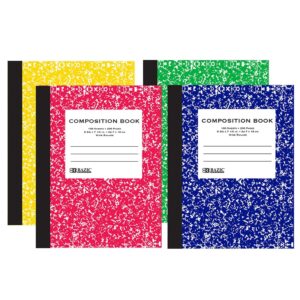Does Net 30 Include Weekends?
Ah, the age-old question that puzzles many business minds: “Does Net 30 include weekends?” The quick answer here is yes! When it comes to Net 30 payment terms, the count includes every single calendar day, weekends and holidays alike. It’s a bit of a common misunderstanding that trips some people up, thinking they only need to worry about business days.
But nope, that 30-day period? It’s not taking any breaks—it’s ticking through Saturdays, Sundays, and even during that Thanksgiving turkey feast. So, if your payment deadline lands on a weekend or a holiday, the due date is still standing firm unless otherwise agreed upon. Understanding this helps prevent any late payment surprises and ensures smoother financial dealings for all parties involved!
Net 30: Decoding the Fundamentals
Definition and Usage
When it comes to navigating business transactions, understanding terms like “Net 30” is crucial. At its essence, Net 30 is a credit term that allows a buyer a 30-day window to make a payment for goods or services they’ve received. But what does the 30-day window really mean? Well, this period starts from a specific date, which could vary depending on the agreement. It might start from the date the invoice is issued, the day the goods are delivered, or upon the project’s completion.
The flexibility of this timeline is important yet can sometimes lead to misunderstandings, especially concerning whether the period includes weekends and holidays. Spoiler alert: It does!
From a buyer’s perspective, these 30 days provide a cushion of financial flexibility. But, for sellers, offering this term can also be a strategic way to attract more buyers, giving them a competitive edge in the market.
Financial Flexibility for Buyers
At the heart of Net 30 is the notion of financial flexibility. For buyers, this arrangement provides the benefit of receiving and using goods or services immediately while delaying payment. Buyers have a full month to consolidate their cash flow, allowing them to settle invoices at a financially convenient time. This breathing room can free up funds for other expenses or investments, making it an attractive option for businesses of all sizes.
Unveiling the Advantages for Buyers
While some might view Net 30 terms as merely a means to postpone payment, there’s so much more at play here, particularly for buyers. Let’s break down the key advantages:
Cash Flow Optimization
Net 30 can dramatically enhance a buyer’s cash flow strategy. Essentially, it acts as a short-term credit facility, where buyers do not need to part with their cash immediately. This can be a game changer for businesses that juggle multiple expenses. By holding onto their money longer, businesses can reinvest in pressing needs or short-term opportunities. In essence, Net 30 provides a financial cushion that helps companies maintain a healthy cash flow.
Quality Assurance
One of the less apparent benefits of Net 30 is its role in quality assurance. The 30-day period allows buyers to thoroughly inspect the goods or services they’ve received. Whether it’s a tangible product or a service delivery, having time to ensure everything meets the agreed standards before making a payment is invaluable. If inconsistencies are found, buyers have the opportunity to address these issues with the seller before the deadline.
Bulk Purchasing Power
With a Net 30 arrangement, businesses gain the latitude to engage in larger transactions than they might not be able to afford if immediate payment were required. This capability can be particularly advantageous when purchasing in bulk, as it might open doors to volume discounts or more favorable pricing terms. Buyers can maximize this purchasing power to grow their business operations without the constraints of upfront payment requirements.
Relationship Building
Interestingly, Net 30 can also pave the way for strong, lasting relationships between buyers and sellers. When a seller extends this credit, it is a gesture of trust and confidence.
In response, buyers often exhibit loyalty and responsibility, fostering a mutual sense of goodwill. Over time, this can lead to enhanced collaboration, better communication, and even more beneficial terms in future dealings. Essentially, Net 30 creates a foundation for building robust business relationships.
Navigating the world of business finance can sometimes feel overwhelming. Still, understanding the nuances of payment terms like Net 30 can significantly impact how businesses manage their finances and relationships.
By leveraging the advantages inherent in these arrangements, businesses not only improve their cash flow but also their position within the competitive market landscape. Whether it’s through optimizing resources, ensuring product quality, or building unbreakable bonds with suppliers, Net 30 offers myriad benefits for savvy business buyers.
Advantages for Sellers: A Closer Look
When it comes to Net 30 payment terms, we often focus on the benefits that buyers enjoy. However, sellers have their own set of advantages that make offering Net 30 worthwhile. Let’s explore what makes this payment term an appealing choice for sellers.
Sales Catalyst
For many businesses, offering Net 30 can be the key to unlocking new sales opportunities. By extending a 30-day payment window, sellers provide financial breathing room for potential buyers who might otherwise struggle with immediate payments. This can be particularly enticing for small businesses or startups that have cash flow constraints but are eager to make purchases. By removing immediate payment barriers, sellers can attract a broader range of customers and boost their sales volume.
Competitive Edge
In the fierce world of business competition, having a unique selling proposition can differentiate your company from the pack. Offering Net 30 terms can provide that edge.
While some competitors might demand upfront payments, extending a credit period shows flexibility and a willingness to work with clients on financial terms. This can not only attract new customers but also foster goodwill among existing ones, enhancing your standing in the marketplace.
Customer Retention
Building lasting relationships with customers is crucial for any business. Net 30 terms can help solidify these relationships by demonstrating trust in your customers’ ability to pay. This trust forms a solid foundation for loyalty, encouraging repeat business from satisfied customers. Not only does this lead to stable revenue streams, but it also creates a community of clients who are more likely to promote your business to others.
Streamlined Collections
Contrary to what some might think, offering Net 30 terms can actually help streamline the payment collection process. By providing a reasonable timeframe for payment, sellers can reduce the occurrence of late payments, which in turn minimizes the hassle and cost of collections. An organized approach to invoicing and payment tracking ensures that customers are well-informed of their deadlines, thus reducing the likelihood of misunderstandings or financial disputes.
Dispelling Net 30 Misconceptions
Despite its widespread application, Net 30 is often misunderstood, leading to confusion and potential friction between buyers and sellers. Let’s clear up some of these common misconceptions.
Misconception: The 30-Day Period Excludes Weekends and Holidays
One of the most common misconceptions about Net 30 is that the 30-day period only counts business days, excluding weekends and holidays. However, the truth is that the period includes all calendar days. So, if your payment due date falls on a weekend or a public holiday, the payment is still expected on that day, unless otherwise specified by the seller.
Misconception: The Start Date is Always the Invoice Date
It’s easy to assume that the Net 30 countdown starts on the invoice date, but that’s not always the case. The start date for the 30-day period can vary depending on the terms agreed upon. It might be from the date the goods are delivered, or the date a service is completed. Always check the terms and conditions outlined in the contract or invoice to know when your payment window begins.
Misconception: Net 30 is Synonymous with Net 30 EOM
Net 30 is not the same as Net 30 EOM (End of Month). With standard Net 30 terms, the payment is due 30 days from the start date specified in the agreement. Net 30 EOM, on the other hand, means that the payment is due 30 days from the end of the month in which the invoice is issued. Understanding this distinction can prevent unnecessary confusion about payment deadlines.
Misconception: There are No Repercussions for Late Payments
Although Net 30 provides a period for payment flexibility, it doesn’t mean there are no consequences for missing the deadline. Many businesses have clear late payment policies in place, which may involve penalties like late fees or interest charges. It’s crucial to be aware of these terms to avoid any financial surprises down the line.
Misconception: Net 30 is an Automatic Entitlement
Some might think that receiving Net 30 terms is a given right, but this isn’t the case. Sellers often perform credit checks before extending such terms and can choose not to offer them based on the buyer’s financial stability or credit history. Furthermore, if a buyer’s financial situation changes or if they frequently pay late, a seller may withdraw their Net 30 privileges.
Misconception: Net 30 is Invariably the Optimal Choice
While Net 30 has its advantages, it’s not always the best fit for every business scenario. Some vendors might offer incentives like early payment discounts, which can be more financially beneficial than waiting the full 30 days.
Additionally, different payment terms might better align with unique customer needs or market conditions, making it essential to assess all available options.
By thoroughly understanding the nuances of Net 30 and clearing up common misconceptions, businesses can make informed decisions that best suit their financial strategies and operations.
The CEO Creative: Streamlining Net 30 Purchases
In the fast-paced world of business, finding a platform that simplifies purchasing processes while offering flexible payment terms can feel like a game-changer. Enter The CEO Creative, a prominent vendor that does just that. By embracing Net 30 terms, they make transactions smooth, transparent, and reliable, all while providing top-notch support to their clients. So, let’s break down the magic formula that makes The CEO Creative stand out.
Effortless Ordering
Navigating the purchasing process should be straightforward and stress-free, and The CEO Creative delivers just that. With their intuitive platform, you can easily browse through a diverse selection of products and services. Pick whatever you need, add your items to the cart, and check out using the convenient Net 30 terms—all with just a few clicks. This ease-of-use transforms purchasing into a streamlined experience, letting you focus on what really matters: growing your business.
Transparent Terms
In the world of business, clarity is king, and The CEO Creative champions transparency. They lay out their Net 30 terms and conditions in no uncertain terms, eradicating any chances for confusion or unexpected fees. This clear-cut approach not only builds trust but also ensures that everyone is on the same page right from the start.
Dedicated Support
Questions and concerns can arise at any moment, and having a reliable support team can make all the difference. The CEO Creative’s customer support team is both responsive and knowledgeable. Whether you have inquiries about your order, need clarification on terms, or face any other issues, their dedicated team is ready to help. With such attentive support, you can enjoy peace of mind knowing that assistance is always just a call or a click away.
Reliable Delivery
When it comes to delivery, timeliness and care are crucial. The CEO Creative partners with a trusted network of suppliers to ensure that your orders arrive on time and in excellent condition. This reliability means you can confidently rely on them to handle your procurement needs, allowing you to keep your focus on other important business operations.
In conclusion, The CEO Creative effectively streamlines Net 30 purchases, making it an attractive option for businesses seeking efficiency and reliability. By offering effortless ordering, transparent terms, dedicated support, and reliable delivery, they position themselves as a top choice for companies looking to simplify their procurement processes while enjoying the financial flexibility of Net 30 terms.
In Conclusion
Net 30 is more than just a number on an invoice. It is a strategic financial tool that offers flexibility and benefits to both buyers and sellers. By understanding the details and eliminating misconceptions, businesses can maximize their cash flow, build lasting business relationships, and gain a competitive edge in the marketplace.
When dealing with Net 30, it’s crucial to remember:
– Weekends and Holidays: The 30-day countdown includes all calendar days, so be prepared for payment deadlines that might fall on weekends or holidays.
– Starting Point: Always verify the start date for the Net 30 term as it may vary depending on the agreement.
Both parties should communicate openly and understand the payment terms clearly to harness the full power of Net 30. With platforms like The CEO Creative simplifying Net 30 transactions, now is a great time to explore this payment option and see how it can benefit your business operations.
Finally, remember that flexibility goes both ways; while Net 30 provides buyers with room to maneuver their financial commitments, it also encourages sellers to offer attractive terms, fostering long-term customer loyalty and growth. Embrace the opportunities Net 30 presents and watch as it becomes a key asset in your business endeavors.








